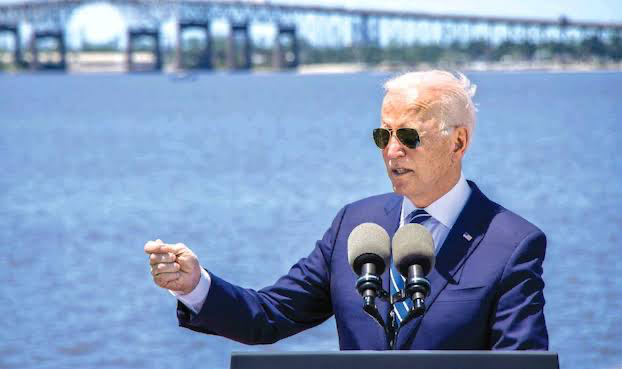KEY POINTS
- Biden commits $600 million to Lobito Corridor for trade and mineral export growth in Angola, Zambia, and DRC.
- The U.S. aims to counter China’s infrastructure influence through Africa-focused investments under its Build Back Better World initiative.
- The Lobito Corridor enhances Angola’s logistics role and supports energy-transition mineral exports vital for renewable technologies.
U.S. President Joe Biden has pledged $600 million in new funding for infrastructure development along the Lobito Corridor, further solidifying the United States’ commitment to advancing key trade routes in Africa.
The announcement was made during the Lobito Trans-Africa Corridor Summit in Angola, attended by prominent African leaders, including Zambian President Hakainde Hichilema, Democratic Republic of Congo (DRC) President Felix Tshisekedi, and Tanzanian Vice President Philip Isdor Mpango.
The Lobito Corridor, a strategic infrastructure initiative, aims to enhance mineral export capabilities from the DRC and Zambia while positioning Angola as a pivotal logistics hub.
The funding underscores the U.S. government’s interest in counterbalancing China’s influence in Africa’s infrastructure sector, which has grown significantly through Beijing’s Belt and Road Initiative.
U.S. investment and broader collaboration
The $600 million commitment adds to a $550 million loan provided by the U.S. in April for the rail project within the corridor. According to the White House, the U.S. has invested approximately $4 billion in initiatives tied to the corridor, reflecting its strategic importance.
“The Lobito Corridor is a critical project for the region’s economic growth and global trade integration,” Biden said. “This funding will ensure sustainable development while boosting the export of minerals vital to the global energy transition.”
The corridor connects key mining regions in the DRC and Zambia to the Angolan port city of Lobito, streamlining the export of minerals such as cobalt and copper. These resources are essential for renewable energy technologies, including electric vehicle batteries and solar panels.
Strengthening Angola’s regional influence
For Angola, the corridor represents an opportunity to strengthen its position as a global logistics hub and attract increased international trade. With improved rail and port infrastructure, the project is expected to create significant economic opportunities and drive regional integration.
Angolan President João Lourenço highlighted the partnership’s importance, stating, “The Lobito Corridor exemplifies how strategic investments can transform economies and foster cooperation between nations.”
A counterweight to China
The Lobito Corridor initiative has garnered support from the European Union and aligns with the U.S.’s Build Back Better World (B3W) initiative, aimed at promoting high-quality infrastructure in developing nations. Biden’s announcement is seen as part of broader efforts to challenge China’s dominance in African infrastructure, which has spanned decades under the Belt and Road program.
As Africa’s significance in the global supply chain grows, the Lobito Corridor represents a cornerstone for future U.S.-Africa collaboration in sustainable development and trade. With Biden’s announcement, the project is poised to become a symbol of renewed international investment in Africa’s economic future.



